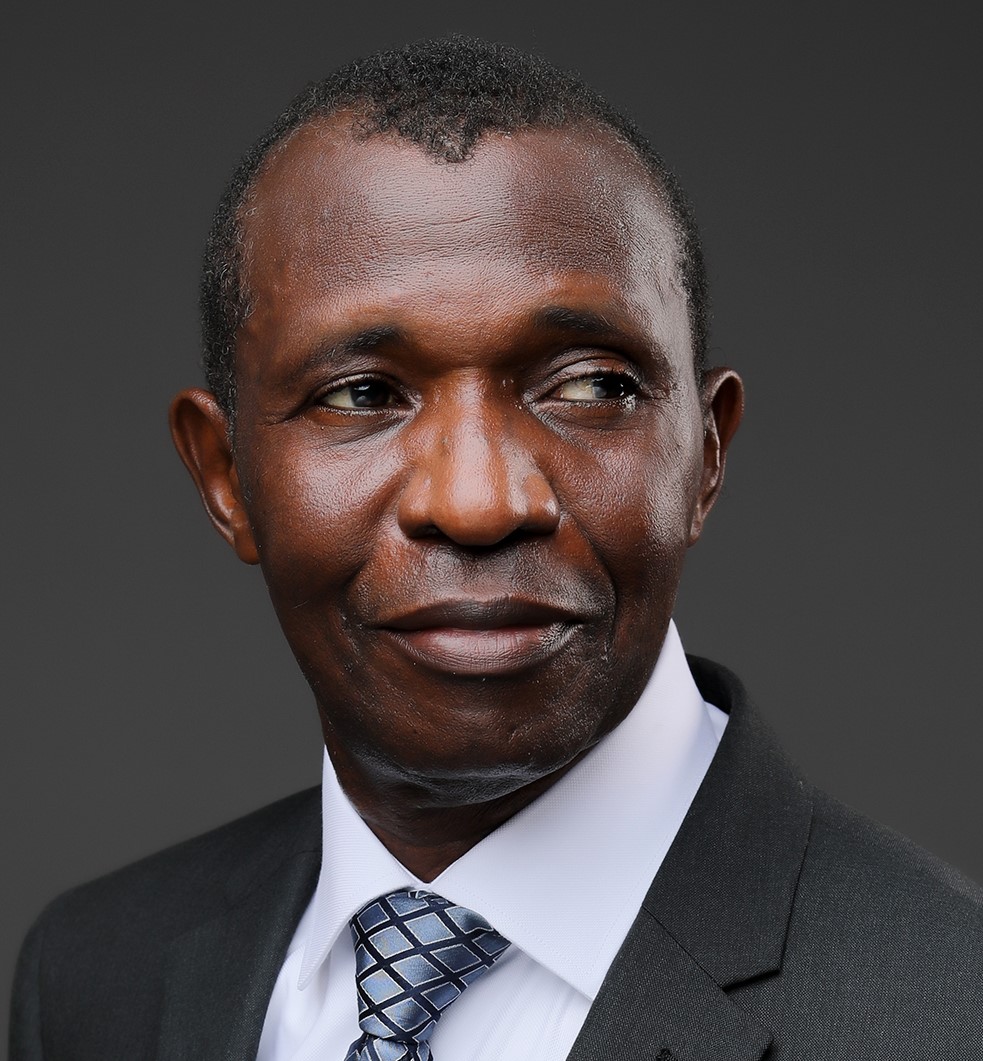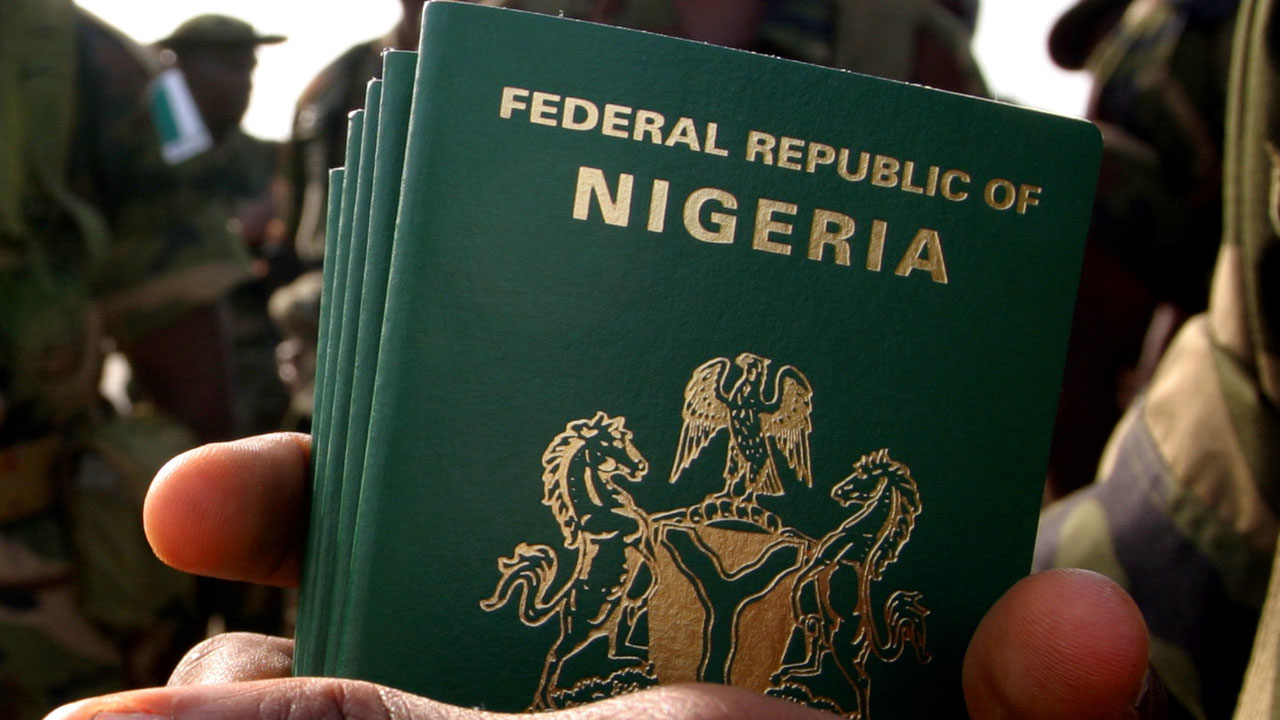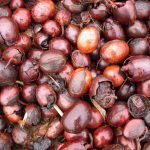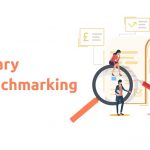Feature/OPED
National Contradictions Tinubu Must Resolve in 2024

By Michael Owhoko, PhD
Any Nigerian with a rational and open mind knows that the complexity of governance in Nigeria today is rooted in the country’s political system, which by any stretch of imagination and logic, is unsuitable for a heterogenous society like Nigeria with over 250 ethnic groups that is characterized by incompatible cultures, varied history, background and interests.
These ethnic groups were hitherto independent nations that ceded their sovereignty to the Nigerian state under federalism, a political system that took cognizance of their peculiarities and agreed upon by the country’s founding fathers.
But ever since this system was subverted and replaced with a unitary state structure, Nigeria has been embroiled with unending suspicion, distrust, disunity, disharmony, nepotism, hegemony and rivalry among the various ethnic nationalities, indicative of its inappropriateness.
The unsuitability of the unitary state structure, inequitable revenue sharing method, breach of the country’s secularity status, dishonest quota system and political location of industries are major national contradictions undermining Nigeria’s potential. Except to hide under cover of pretence, it is common knowledge that Nigeria’s progress is held down by these national paradoxes. They are aberrations and drawbacks that are fundamentally responsible for the country’s stunted growth. These are what President Tinubu must address in 2024 to set the tone for an equitable and prosperous Nigeria.
Efforts outside this trajectory amount to a sheer cosmetic administrative routine and a waste of valuable resources incapable of restoring hope. The Unitary system of government has become a Frankenstein monster that is pushing the country towards the precipice with diminished national and global stature. Until a more suitable political template is introduced, Nigeria will continue to drift in circles like a regional giant with no illuminating potential to inspire public confidence.
Federalism had been tested in Nigeria, and it worked. It is a system of government where all federating states and central government are financially independent, autonomous, interdependent and co-equal with neither the federal government nor the states inferior to each other. This is the political system that best suits the country’s cultural diversity and sociological complexities, capable of achieving equity, justice and balance.
In a plural society like Nigeria, the unitary system is a misfit, lacking the capacity to promote unity. It engenders acrimony, disaffection, nepotism, primordial nationalism and marginalization, owing to conflicting cultural aspirations. The emergence of separatist movements and other related self-determination groups are some of the challenges facing Nigeria today, justifying the need for Federalism to stem the tide. Otherwise, the country risks more ethnic nationalities surfacing to seek autonomy.
With about 68 items on the Exclusive list and 12 items on the Concurrent list, the 1999 Constitution is in structure, content and spirit, a Unitary constitution, where the destiny of the states and people are determined and centrally regulated, using revenue allocation as a tool for coercion and subservient corporatism. This Constitution has failed Nigerians. The states or geo-political zones want an independent hold of their future within the context of their distinct cultural aspirations.
As a way out, the concept of the 1963 Constitution should be invoked to allow states to take control of mineral deposits found in their domains. In other words, fiscal federalism with a derivation principle allowing retention of a 50 per cent minimum of accrued revenue found in or generated by the states, should be introduced. All states and geo-political areas in Nigeria are evidently endowed as God has provided every habitat with natural resources, including agricultural crops for subsistence. This will not only give states the necessary financial autonomy, but will encourage them to harness and optimize their potential, just as it will encourage hard work, healthy competition, and discourage indolence.
The government’s involvement in religion is also a national contradiction and aberration. Nigeria is a secular state as affirmed by Section 10 of the 1999 Constitution, which says that the Government of the federation or of a state shall not adopt any religion as state religion in Nigeria. However, the federal government’s behavioural disposition undermines this clause when viewed against the backdrop of its contribution and participation in religious matters.
By establishing the National Hajj Commission of Nigeria (NAHCON) and the Nigeria Christian Pilgrim Commission (NCPC) to oversee and facilitate the process for participation of Muslims in Hajj or Umra in Saudi Arabia and the pilgrimage of Christians to Jerusalem and other holy sites, the federal government has adopted Islam and Christianity as official religions, contrary to the intention of secularism.
Deception of Nigeria’s secularity status is further exposed by Nigeria’s membership of the Organisation of Islamic Cooperation (OIC), a religious body representing “the collective voice of the Muslim world”, and working “to safeguard the interests and ensure the progress and well-being of Muslims.” Nigeria’s membership is a tacit endorsement of the country as an Islamic state, as depicted by its commitment to dues obligation.
Religion is a personal affair, and individuals are at liberty to practice their faith as deemed appropriate, as long as it does not violate the rights of others. The huge amount expended by the federal government annually to fund NAHCON and NCPC, as well as meeting financial obligations in OIC, is an infringement on the right of Nigerians whose taxes are used to service these private interests.
After all, the government’s involvement in religion has not reduced moral decadence in Nigeria, as most beneficiaries of these pilgrimages to Hajj and Jerusalem are involved in corruption that has contributed to the country’s woes. Rather than waste the country’s resources on these unprofitable ventures, such money should be used to shore up decaying infrastructure across the country.
President Tinubu should therefore dissolve NAHCON and NCPC, and remove Nigeria from membership of OIC, as part of strategies to maintain the secularity of Nigeria. Any state government whosoever desires to fund its citizens to holy sites is free to do so at its own expense. The federal government must hand off religion to save taxpayers’ money.
The quota system is another national contradiction. It is part of Nigeria’s problems and a source of bureaucratic ineptitude that should be discarded for excellence. This system has been consistently abused and manipulated by government officials to serve primordial and entrenched interests. The system has also deprived millions of brilliant Nigerians of opportunities to serve their fatherland on account of their states of origin.
When merit is sacrificed on the altar of representation, what you have is incompetence and failure. Nigeria is currently paying the price of poor performance in government owing to quota application in the recruitment process in ministries, departments and agencies (MDAs). The outcome has been inefficiency and poor delivery output with no value addition.
Sadly, the quota system is applicable to the educational sector which is supposed to be the substratum of research and development. Unqualified students are admitted into federal unity schools and universities while brilliant ones are unable to secure placements. In some cases, the appointment of professors and award of PhD degrees are based on a quota system, leading to the production of quota scholars lacking the capacity for research and discovery. What an irony for a country that is striving to compete in global affairs!
The quota system is a recipe for failure and poor performance. It is not applicable in the private sector because of these gaps. This may have also informed why the powers that be have deliberately refused to introduce the system in the selection of players for the national team, the Super Eagles. They know that if the obnoxious quota is applied, the performance of the Super Eagles will be an outright tragedy for the country.
Another national contradiction is the political location of industries. Oil and gas companies involved in the exploration of crude oil in the Niger Delta should be compelled to relocate their administrative headquarters to areas where they have a minimum of 70 per cent of their operations. This will not only accelerate the development of the region but will help in resolving current poverty and frustration, resulting from negligence and degradation in the region. The Nigeria LNG Limited which moved its administrative headquarters from Lagos to Bonny Island, Rivers State, where its operational base is located, is enjoying support from its host communities. The company should be commended and emulated.
Therefore, to reset, reshape and reposition Nigeria for a stronger brand identity aimed at maximizing its full potential to achieve national progress, regional influence and global respect, President Bola Tinubu must address and nip these national contradictions in the bud by next year, 2024.
Dr Mike Owhoko, Lagos-based journalist and author, can be reached at www.mikeowhoko.com.
Feature/OPED
The Hidden Workforce of the 2026 Access Bank Lagos City Marathon

When the final runner crossed the finish line at the 11th edition of the Access Bank Lagos City Marathon (ABLCM), the applause began to fade. But for hundreds of workers across Lagos, the real work was just beginning.
Major highways had been closed to facilitate the event. Tens of thousands of runners moved through the city in a coordinated surge of athletic endurance. Thousands of bottles of water and energy drinks were distributed, alongside sachets containing essential medical supplies and medication. The race route itself was meticulously prepared, lined with banners, barricades, medical tents and precision timing systems that ensured safety, organisation and accurate performance tracking from start to finish.
What followed was the part that a few cameras lingered on, yet it remains one of the clearest indicators of institutional progress.
Within minutes of the race conclusion, coordinated sanitation teams fanned out across the marathon corridor. Their work went beyond sweeping. Waste was systematically sorted. Plastic bottles were separated from general refuse. Sachets were gathered in bulk. Collection trucks moved along predefined routes, ensuring rapid evacuation of waste. Temporary race infrastructure was dismantled with quiet precision.
In a megacity like Lagos, speed is a necessity. Urban momentum cannot pause for long. The ability to restore order quickly after an event of this magnitude reflects operational discipline across interconnected systems, municipal authorities, environmental agencies, private waste management partners and event coordinators.
Globally, large-scale sporting events are no longer evaluated solely by participation numbers or prize purses. Sustainability has emerged as a defining metric. Environmental responsiveness is now a core measure of credibility. Cities seeking tourism growth, foreign investment and international partnerships must demonstrate that scale does not compromise responsibility. The 2026 marathon provided a compelling case study in this evolution.
The clean-up operation itself generated meaningful economic activity. Temporary employment opportunities emerged for sanitation workers and logistics personnel. Recycling partners engaged in material recovery, reinforcing circular economy value chains. What was once viewed as routine waste disposal has evolved into a structured ecosystem of environmental services, a sector of increasing importance in modern urban economies.
This level of sustainability was the result of deliberate planning. Effective post-event recovery requires route mapping, waste volume projections, coordination between sponsors such as Access Bank Plc and municipal bodies, contingency planning for congestion points and clear communication protocols.
Each edition of the marathon has built on lessons from the last. International participation has expanded. Accreditation standards have strengthened. Media visibility has grown. Most importantly, environmental management has become embedded in the marathon’s operational framework rather than treated as an afterthought.
Progress rarely arrives in dramatic leaps, it advances through incremental improvements, refined systems and institutional learning. Just as elite runners close performance gaps through disciplined training, cities strengthen their global standing through consistent operational excellence.
The 2026 marathon, therefore, tells a story that extends far beyond athletic achievement. It is a story of coordination, sustainability as strategy rather than slogan, and the often unseen workforce, sanitation workers, planners, volunteers, security officials and environmental partners, whose discipline sustains the spectacle.
Because in the end, global cities are judged by how well they host and how responsibly they restore. On the marathon day in Lagos, it was the runners who demonstrated endurance and the systems, and the people behind them, who ensured that when the cheering stopped, the city kept moving.
Feature/OPED
N328.5bn Billing: How Political Patronage Built Lagos’ Agbero Shadow Tax Empire

By Blaise Udunze
Lagos prides itself as Africa’s commercial nerve centre. It markets innovation, fintech unicorns, rail lines, blue-water ferries, and billion-dollar real estate. Though with the glittering skyline and megacity ambition lies a parallel state, a shadow taxation regime run not from Alausa, but from motor parks, bus stops, and highway shoulders. They are called “agberos.” And for decades, they have functioned as Lagos’ unofficial tax masters.
What began as loosely organised transport unionism mutated into a pervasive and often violent system of extortion. Today, tens of thousands of commercial buses, over 75,000 danfos according to estimates by the Lagos Metropolitan Area Transport Authority, ply Lagos roads daily. Each bus is a moving ATM. Each stop is a tollgate. Each route is a revenue corridor.
Looking at the daily estimate from their operations, at N7,000 to N12,000 per bus per day, conservative calculations show that between N525 million and N900 million is extracted daily from drivers. Annually, that balloons toward N192 billion to N328.5 billion or more, money collected in cash, unreceipted, unaudited, unaccounted for. This illicit taxation on an industrial scale did not emerge in a vacuum.
The reality today is that to understand the scale of the problem, one must confront its political history. It was during the administration of Bola Ahmed Tinubu as Lagos State governor from 1999 to 2007, who is now the President, that the entrenchment of transport union dominance and motor park patronage deepened.
Under his political machine, transport unions became not just labour associations but mobilisation structures, formidable grassroots networks capable of crowd control, voter turnout engineering, and territorial enforcement. In exchange for political loyalty, street influence translated into operational latitude.
Motor parks became power bases. “Area boys” became enforcers. Union leadership became politically connected. What should have been regulated associations morphed into revenue-generating franchises with muscle.
The system outlived his tenure. It institutionalised itself. It professionalised. It is embedded in Lagos’ political economy.
And today, it thrives in broad daylight. Endeavour to visit Ajah under bridge, Ikeja under bridge, or Mile-2 along Ojo at 6:00 a.m. Watch drivers clutching crumpled naira notes. Observe men in green trousers and caps marked NURTW weaving between buses, collecting what drivers call òwò àrò, or evening as òwò iròlè money taken from passengers.
A korope driver shouts, “Berger straight!” His bus fills. The engines rumble. But before he moves, he must pay. If he refuses? The side mirror may disappear. The windscreen may crack. The conductor may be assaulted. The vehicle may be blocked with planks, and if they resist, the conductor or driver may be beaten. Movement becomes impossible. It is not optional.
This is common across Lagos, especially amongst drivers in Oshodi, Obalende, Ojodu Berger, Mile 2, Iyana Iba, and Badagry, and describes a three-layered structure ranging from street collectors, area coordinators, and union executives at each location. Daily targets flow upward. Commissions remain below.
One conductor disclosed he budgets at N8,500 daily for louts alone, excluding fuel, delivery to vehicle owners, and official tickets. Another driver says he parts with nearly N15,000 in total daily levies across routes.
Of N40,000 collected on trips, barely N22,000 survives before fuel. Sometimes, drivers go home with N3,500. Working like elephants. Eating like ants. The impact extends far beyond drivers.
Every naira extorted is transferred to commuters. An N700 fare becomes N1,500. A N400 corridor becomes N1,200 in traffic, and this is maintained even after fuel prices fall; fares rarely decline. The hidden levy remains.
Retail traders reduce stock purchases because transport eats profits. Civil servants watch salaries stagnate while commuting costs climb. Market women complain that surviving Lagos costs more than living in it.
This is not just a transport disorder. It is inflation engineered by coercion. Economists call it financial leakage, money extracted from the productive economy that never enters the fiscal system. Billions circulate annually without appearing in government ledgers. No roads are built from it. No hospitals funded. No schools renovated.
It is taxation without development. Small and Medium Enterprises form nearly half of Nigeria’s GDP and employ the majority of its workforce. In Lagos, they are under assault from informal levies layered on top of official taxes. Goods delivered by bus carry hidden transport premiums. Commuting staff face higher daily costs. Inflation ripples through supply chains.
The strike by commercial drivers in 2022 exposed the depth of resentment. Under the Joint Drivers’ Welfare Association of Nigeria (JDWAN), drivers protested “unfettered and violent extortion.” Lagos stood still. Commuters trekked. Appointments were missed. Businesses stalled.
Drivers alleged that half of their daily income vanished into motor park collections.
Some who protested were attacked. Yet the collections continued.
Drivers insist daily collections at single corridors can exceed N5 million. Park chairmen allegedly control enormous cash flows. Uniformed collectors operate with visible confidence.
Meanwhile, the Lagos State Government denies sanctioning any roadside extortion. Officials describe the tax system as institutionalised and structured. They promise reforms through Bus Rapid Transit, rail expansion and corridor standardisation. Yet the shadow toll persists.
Contrast this with Enugu State, where Governor Peter Mbah introduced a Unified e-Ticket Scheme mandating digital payments directly into the state treasury. Paper tickets were banned. Cash collections outlawed. Revenue flows are traceable. Harassment criminalised.
Drivers in Lagos say openly that they should be given a single N5,000 daily ticket paid directly to the government, and end the chaos. Instead, they face multiple actors, agberos, task forces, and traffic officials, each demanding settlement.
The difference is in governance philosophy. One digitises and centralises revenue to eliminate leakages.
The other tolerates fragmentation that breeds shadow collectors. The uncomfortable truth is that the agbero structure is politically sensitive. Transport unions are not just labour bodies; they are political instruments. They mobilise during elections. They maintain territorial presence. They command street loyalty. In return, they are allegedly tolerated, protected, or absorbed into broader political structures as they turn into war instruments and a battle axe in the hands of the government of the day. The underlying reality is that the agbero who are the street-level power structures and the government authorities benefit from each other; the line between unofficial influence and official governance becomes unclear, making reform politically sensitive.
The issue is not merely about street disorder; it is about economic governance. Illicit taxation distorts pricing mechanisms, reduces productivity, discourages the formalisation of businesses, and weakens public trust. If citizens are compelled to pay both official taxes and unofficial levies, compliance morale declines. Why comply with statutory taxation when parallel systems operate unchecked?
Dismantling them is not merely administrative; it is political. Perhaps unbeknownst to the people, the cost of inaction is immense. Lagos aspires to be a 21st-century smart megacity under such an atmosphere. But investors notice informal roadblocks. Businesses factor in unpredictability. Commuters absorb unofficial taxes daily. Across Lagos roads, the script repeats “òwò mi dà,” meaning, give me my money.
Passengers plead with collectors to reduce levies so they can proceed. Conductors argue over dues before departure. Citizens feel hostage to a system they neither elected nor authorised.
Taxation, constitutionally, belongs to the state. It must be legislated, receipted, audited and deployed for the public good.
Agbero taxation is none of these. It is coercive. It is not transparent. It is extractive. Lagos has launched rail lines and BRT corridors. The Lagos Metropolitan Area Transport Authority continues transport reforms. Officials promise that bus reform initiatives will eliminate unregistered operators. But reform cannot be selective. You cannot modernise rail while medieval tolling persists on roads. You cannot preach digital governance while cash collectors flourish at bus stops. You cannot aspire to global city status while informal muscle dictates movement.
The solution is not episodic arrests. It is a structural overhaul: mandatory digital ticketing across all parks; a single harmonised levy payable electronically; an independent audit of union revenue; protection for drivers who resist illegal collections; and political decoupling of unions from patronage networks.
The agbero empire is not merely about bus fares. It is about how patronage systems, once empowered, metastasise into parallel authorities. What may have begun as strategic alliance-building two decades ago has matured into a shadow fiscal regime embedded in daily life.
The challenge is that Lagosians are left with no choice as they now pay twice, once to the government, once to the streets. And unlike official taxes, shadow taxes leave no developmental footprint. No bridge bears their name. No hospital wing testifies to their billions. No classroom is built from their collections. Only inflated fares. Broken windscreens. Frustrated commuters. And drivers who sweat under the sun, calculating how much will remain after everyone has taken their cut.
The agbero question is ultimately a governance question. Is Lagos governed by law, or by tolerated coercion? Is taxation a constitutional function, or a roadside negotiation? Is political convenience worth permanent economic distortion? What is absolutely known is that the structure has a political backing and what politics created, politics can dismantle.
Unless meaningful reform takes place, Lagos will continue to remain a megacity with a shadow treasury, where movement begins not with ignition, but with payment to men who answer to no ledger without any tangible returns. This is to say that every danfo that moves carries not just passengers, but the weight of a system that taxes without law, collects without accountability and punishes the very people who keep the city alive.
Blaise, a journalist and PR professional, writes from Lagos and can be reached via: bl***********@***il.com
Feature/OPED
How to Nurture Your Faith During Ramadan

Many Muslims grow up learning how to balance life carefully. Faith, work, and responsibility all sit on the same scale, and during Ramadan, that balance becomes even more delicate. Days start earlier than usual, nights stretch longer, and energy is spent with intention.
Over time, this rhythm shapes more than schedules; it quietly shapes how Ramadan is experienced.
Between getting ready for work, navigating long days, preparing meals for iftar, observing prayers, and trying to rest, moments for reflection are often pushed to the side. When there’s finally time to pause, many people assume meaningful Islamic content requires complete silence, full attention, and emotional space, things that can feel scarce during the month.
They scroll past channels they believe may be too formal, or not suited to their everyday routine. They stick to what feels familiar, even if it doesn’t quite align with the spirit of the season and without realising it, they limit themselves.
What many don’t know is that content designed for moments like these already exists on GOtv. The Islam Channel offers programming that understands Ramadan as it is truly lived.
On the Islam Channel, viewers can find thoughtful discussions that explore faith in a way that feels relevant to modern life, educational programmes that break down Islamic teachings clearly and calmly, and inspiring shows that encourage reflection without feeling overwhelming. There are conversations that can play softly in the background while you’re cooking, reminders you can catch while getting dressed for work, and programmes that help you unwind gently after a long day of fasting.
What sets the channel apart is how it personalises Islamic themes, making them accessible not just during prayer time, but throughout the day. Its content is created to inform, reflect, and inspire, whether you’re actively watching or simply listening as life continues around you. And while it speaks directly to Muslim audiences, it also remains open and welcoming to non-Muslims interested in understanding Islamic values, culture, and everyday perspectives.
During Ramadan, television often becomes part of the atmosphere rather than the focus. And having access to content that aligns with the season can quietly enrich those in-between moments, the ones that often matter most.
This Ramadan, the Islam Channel is available on GOtv Ch 111, ready to meet you wherever you are in your day.
And here’s the exciting part: with GOtv’s We Got You offer, you can enjoy your current package and get access to the next package at no extra cost. There’s never been a better time to hop on and get more shows, more suspense, and more entertainment, all for the same price!
To upgrade, subscribe, or reconnect, download the MyGOtv App or dial *288#. For watching on the go, download the GOtv Stream App and enjoy your favourites anytime, anywhere.
-

 Feature/OPED6 years ago
Feature/OPED6 years agoDavos was Different this year
-
Travel/Tourism10 years ago
Lagos Seals Western Lodge Hotel In Ikorodu
-

 Showbiz3 years ago
Showbiz3 years agoEstranged Lover Releases Videos of Empress Njamah Bathing
-

 Banking8 years ago
Banking8 years agoSort Codes of GTBank Branches in Nigeria
-

 Economy3 years ago
Economy3 years agoSubsidy Removal: CNG at N130 Per Litre Cheaper Than Petrol—IPMAN
-

 Banking3 years ago
Banking3 years agoSort Codes of UBA Branches in Nigeria
-

 Banking3 years ago
Banking3 years agoFirst Bank Announces Planned Downtime
-

 Sports3 years ago
Sports3 years agoHighest Paid Nigerian Footballer – How Much Do Nigerian Footballers Earn














